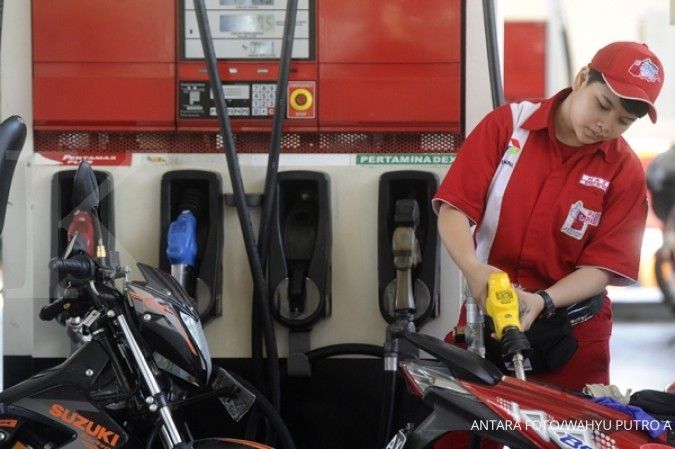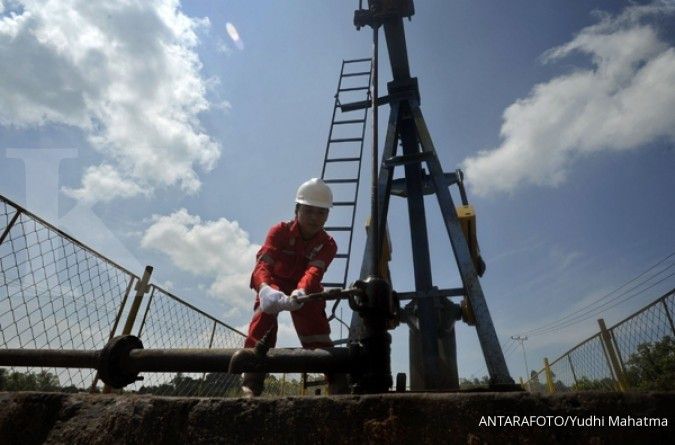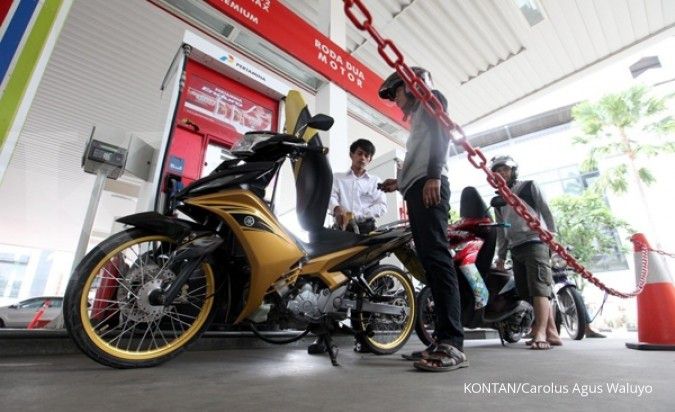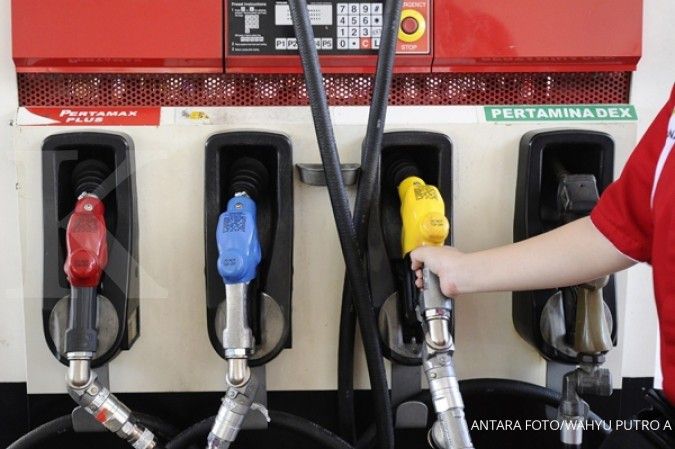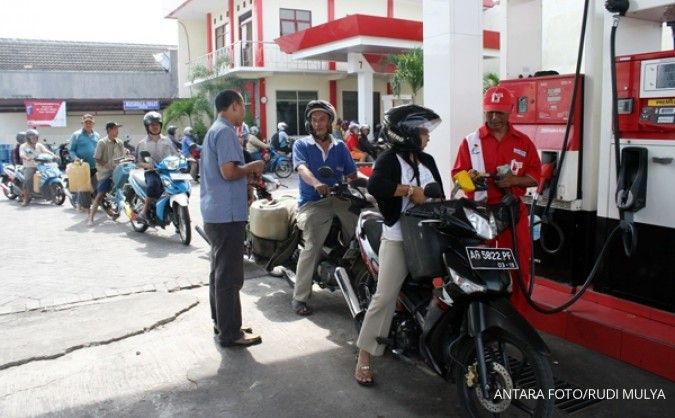JAKARTA. Indonesia has increased the price of subsidized gasoline again in line with its fixed-subsidy plan, but the price is significantly lower than its actual market price, a policy that may eventually force the government to spend on fuel subsidies again.
On Saturday, the price for Premium (gasoline) and Solar (diesel) fuels increased to Rp 7,400 (57 US cents) per liter and Rp 6,900 per liter, respectively, both increasing Rp 500 per liter from previous prices.
However, the new prices were set well below market price, as the sharp depreciation of the rupiah and the increase in oil prices, stemming from recent geopolitical tension in Middle Eastern countries, drove up the cost of fuel imports.
The economic price of Premium currently stands at around Rp 8,000 per liter, according to Widhyawan Prawiraatmadja, an expert staff at the Energy and Mineral Resources Ministry.
“We could not increase the fuel price too drastically,” Widhyawan said on Sunday.
The move, he said, showed that the government did not allow fuel prices to be dictated by the market, as demanded by the country’s Constitution.
In this case, the fuel prices could be increased gradually in line with fluctuations in the exchange rate and global oil prices, according to Widhyawan, who urged the politicians and economists not to politicize the issue of fuel subsidies.
“This is not supposed to be a continuously debated political issue,” he said, adding that the public should be educated so that it became accustomed to the fluctuation in fuel prices.
The government did not earmark any funds for Premium subsidies in the revised 2015 state budget, after President Joko “Jokowi” Widodo abolished unproductive fuel subsidies — which hit Rp 276 trillion last year, around 15 percent of total state spending — and reallocated the funds to more productive uses such as infrastructure projects.
Under Jokowi’s new fixed-subsidy system, the prices of Premium and Solar are no longer capped, but instead are evaluated and adjusted every month in accordance with fluctuations in the exchange rate and global oil prices.
The new fuel prices, however, raised the question of who will pay for the Premium and Solar subsidies, both of which are sold significantly lower than their actual prices on the global market.
Widhyawan said state-owned oil and gas company Pertamina — not the revised 2015 state budget — would temporarily finance the subsidy gap.
He explained that when oil prices fall in the future the government might not lower the prices of Premium and Solar too drastically, thus allowing Pertamina to reap profits that could compensate for present losses.
However, the policy is feared to create confusion and has drawn criticism from observers.
“As a state-owned company, PT Pertamina is a profit-oriented firm that is mandated not to incur [financial] losses, but now they have to bear the burden of subsidies,” Kardaya Warnika, the chairman of House of Representatives Commission VII overseeing energy, said on Sunday.
“A policy must be implemented consistently, not shifting from left to right.”
Nevertheless, economic stakeholders have urged the government not to adjust fuel prices drastically, citing difficulties in adjusting to the economic uncertainty, notably the potential swings in operating costs and price levels.
“If the adjustment in fuel prices is relatively small — say, for example, less than 5 percent — then public transportation operators could still adjust to the new conditions by reducing their margins,” said Andriansyah, the secretary-general of the Organization of Land Transportation Owners (Organda).
The government’s fixed-subsidy plan, nevertheless, was still a huge burden on public transportation owners, who could not adjust their tariffs in line with the soaring operating costs due to higher fuel prices, he noted. (Satria Sambijantoro)
Govt may pay fuel subsidies
March 30, 2015, 11.26 AM
/2011/07/26/1555555461p.jpg)
ILUSTRASI. Karyawan penukaran mata uang asing menunjukan dollar Amerika Serikat di Masayu Agung, Jakarta, Rabu (05/09). KONTAN/Fransiskus Simbolon/05/09/2018
Source: The Jakarta Post
| Editor: Hendra Gunawan
Latest News
-
February 11, 2026, 02.14 PM
Indonesia Arrests 11 for Alleged Corruption Over Palm Oil Exports
-
February 10, 2026, 05.28 PM
Indonesia Says Proposed Gaza Peacekeeping Force Could Total 20,000 Troops
-
February 10, 2026, 02.44 PM
Indonesia Distributes $648 Million in Subsidies for Palm Oil Replanting Programme
-
February 10, 2026, 09.47 AM
FTSE Russell Postpones Indonesia Index Review
-
February 10, 2026, 06.42 AM
GLOBAL MARKETS-Stock Indexes Gain with US Technology Shares, Yen Strengthens
-
February 09, 2026, 10.13 PM
Gold Rises as Dollar Slips, Focus Turns to US Jobs Data
-
February 09, 2026, 05.55 PM
Indonesia to Hold Follow-up Meeting with MSCI This Week after Market Rout
-
February 09, 2026, 08.05 AM
GLOBAL MARKETS-Asia Rallies as Japan Shares Surge to Record Peak
-
February 08, 2026, 02.30 PM
South Korean Crypto Firm Accidentally Sends US$44 Billion in Bitcoins to Users
